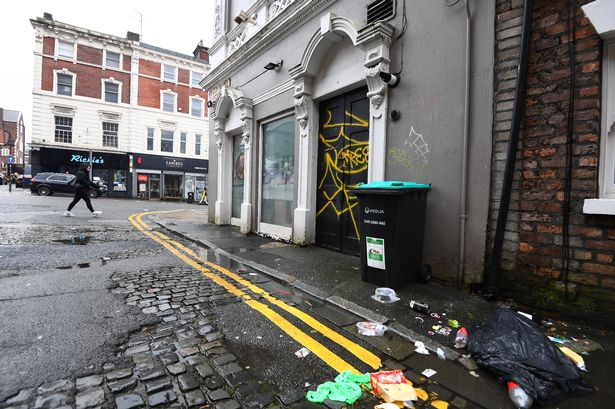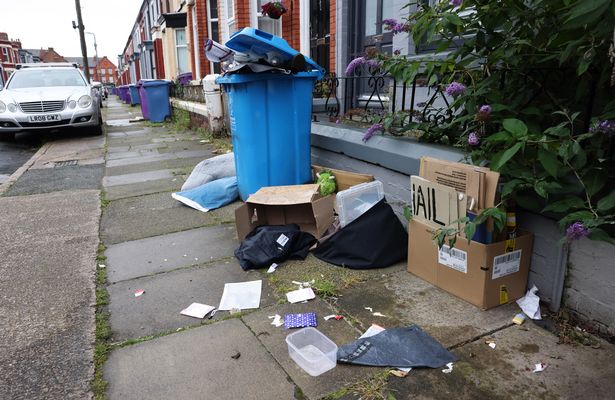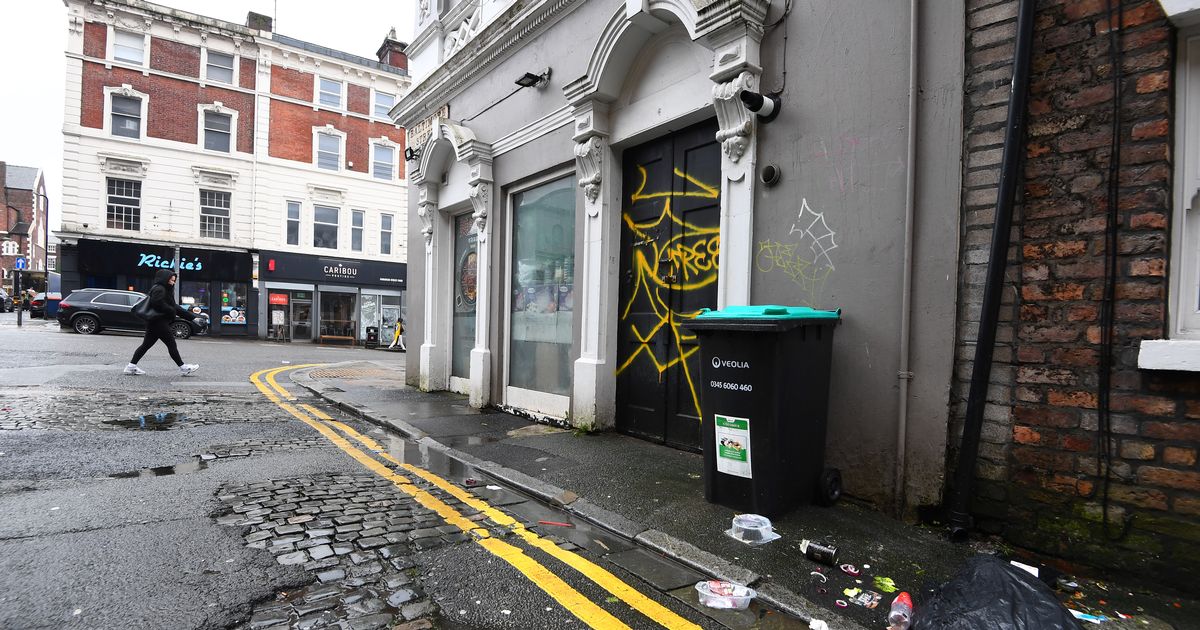Liverpool Council has agreed a contract with a new external partner who will hit the city streets this summer A new litter squad will patrol the streets of Liverpool (Image: Andrew Teebay)
A new litter squad will patrol the streets of Liverpool (Image: Andrew Teebay)
The identity of a new litter squad that will patrol the streets of Liverpool, handing out fines to those dumping rubbish, dropping litter and failing to pick up dog waste has been revealed. Liverpool City Council previously agreed to offer a three-year-contract to a new external partner to tackle environmental crimes across the city.
Now, following the finalisation of contracts, Waste Investigations Support and Enforcement (WISE) can be officially named as the new external enforcement team. WISE will begin to operate in all areas of Liverpool this summer.
The agreement means that there will be additional officers working to help prevent environmental crimes and issue Fixed Penalty Notices (FPNs) to anyone caught offending.
In England, littering, dog fouling and fly-tipping are all illegal. Anyone caught committing an offense can be issued a FPN by a local authority, or face prosecution in court.
As well as appointing an external enforcement team, Liverpool Council’s cabinet has also agreed to increase the rate of penalties to deter people from offending.
Litterers will now face a £150 penalty, while those caught dog fouling will be ordered to pay £100. A tiered penalty system has been introduced for fly-tipping, starting at £500, increasing depending on severity.
WISE will be supporting the work already taking place through the council’s internal environmental enforcement team, who have been in post since June last year.
Approximately £950,000 has been invested into the creation of the team, who, to date, have issued 151 FPNs and 183 written warnings, as well as speaking to almost 1000 residents and businesses about how to dispose of waste responsibly.
From 2023 to 2024, reports of fly-tipping dropped by 2.15 per cent, and requests to clean streets decreased by 21 per cent.
Despite the team’s work, the council has received 16,683 requests to remove fly-tipping in a 12-month period, costing taxpayers approximately £1.5m a year.
It is hoped that the number of reports will drop further after WISE start their patrols around the city. The organisation currently works with 31 local authorities and operates in cities such as Manchester, Birmingham, and Milton Keynes.
 A new litter squad will patrol the streets of Liverpool (Image: Liverpool Echo)
A new litter squad will patrol the streets of Liverpool (Image: Liverpool Echo)
WISE and the city council will have regular meetings to review the service quality and mitigate any identified risks and the council says it will have have no targets for issuing FPNs for either its internal or external teams, with the focus instead on driving behaviour change across the city.
Speaking about the appointment, Councillor Laura Robertson-Collins, Liverpool City Council’s cabinet member for communities, neighbourhoods and streetscene said: “Residents have told us that fly-tipping, dog fouling, and littering are key issues affecting them and their communities and we’re committed to doing everything we can to stop offenders ruining our streets.
“Our internal enforcement teams are already making significant positive changes across the city, but there are still a large number of reports regarding this selfish behaviour. Tackling these issues requires more feet on the ground at all times, which is what our partnership with WISE will help to provide.
“Throughout the in-depth procurement process, we were impressed by WISE’s approach to enforcement elsewhere and are confident that they will provide a high-quality, professional enforcement service in Liverpool.
“We have a shared goal to change people’s attitudes and behaviours across the city and create a cleaner, more attractive Liverpool for everyone to enjoy.”
John Dunne, managing director of WISE said: “WISE delivers a wide range of environmental investigations and enforcement services across the UK and has consistently contributed to the reduction of environmental crime and the cost of cleansing associated with it.
“Our core objective is to support Liverpool in achieving long-term improvements in local environmental quality by targeting problem areas using an ‘intelligence-led’ approach. This includes the use of geo-fencing technology and responding directly to feedback and complaints from residents.
“We will employ a firm but proportionate methodology to address environmental offences, underpinned by the use of body-worn cameras and mobile technology to verify offender details and issue fixed penalty notices efficiently and lawfully.
“Our officers are committed to engaging positively with local communities to promote inclusive participation in protecting and enhancing the environment across the City of Liverpool.”
